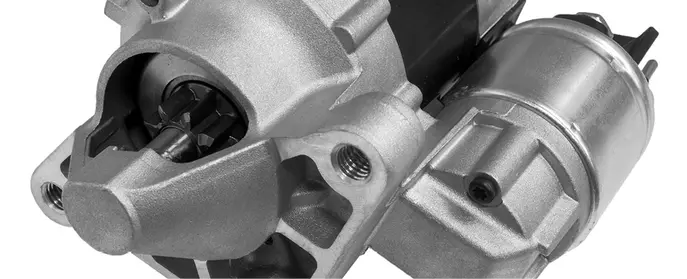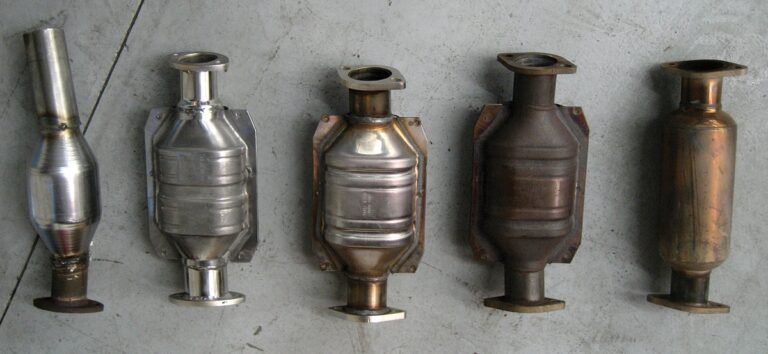Quick Fixes for Faulty Car Starter Motor
Dealing with a faulty car starter motor? Check the battery, connections, and solenoid for issues.
Quick fixes for a faulty car starter motor can save you time and money. Understanding the common problems and solutions can help you troubleshoot your car’s starter motor. Whether it’s a dead battery or a loose connection, addressing the issue promptly can prevent further damage.
We’ll explore some quick fixes for a faulty car starter motor, providing you with the knowledge to address the problem effectively. By following these tips, you can potentially avoid a costly trip to the mechanic and get your car back on the road quickly.
Common Signs Of A Faulty Car Starter Motor
Recognizing the common signs of a faulty car starter motor is crucial for maintaining the health of your vehicle. By understanding these signs, you can take quick action to address the issue before it becomes a major problem.
Starting Issues
If your car is slow to start or requires multiple attempts before the engine turns over, it could be indicative of a faulty starter motor.
Strange Noises
Grinding or whirring sounds when starting your car can signal a problem with the starter motor, indicating worn-out or damaged components.
Smell Of Burning
A burning odor emanating from your car’s engine compartment may suggest an overheating starter motor, requiring immediate attention to prevent further damage.
Electrical Issues
Flickering dashboard lights or dim headlights during startup can point towards an electrical issue related to the starter motor, necessitating a professional inspection.

Credit: www.wikihow.com
First Steps To Diagnose A Faulty Car Starter Motor
Diagnosing a faulty car starter motor is crucial for maintaining a healthy vehicle. Understanding the first steps in identifying the issue can help you pinpoint the problem quickly and efficiently. By focusing on key areas such as the battery, connections, and starter solenoid, you can save time and money in the long run.
Check The Battery
The first step in diagnosing a faulty car starter motor is to check the battery. A weak or dead battery can often mimic the symptoms of a faulty starter motor. Use a multimeter to determine the battery’s voltage. Ensure the battery terminals are clean and free from corrosion. If the battery voltage is below the recommended level, it may need to be charged or replaced.
Inspect The Connections
Examining the connections is another critical step in diagnosing a faulty car starter motor. Inspect the battery cables for any signs of damage or corrosion. Loose or corroded connections can prevent the starter motor from receiving the necessary electrical current. Clean the terminals and connections thoroughly to ensure a secure and efficient electrical flow.
Test The Starter Solenoid
Testing the starter solenoid is imperative in diagnosing a faulty car starter motor. Use a voltage meter to check for power at the solenoid when turning the ignition key. If there is no power present, it may indicate a faulty solenoid. Additionally, listen for any clicking sounds when attempting to start the vehicle, as this could also signal a malfunctioning solenoid.
Quick Fixes For A Faulty Car Starter Motor
When your car fails to start, it could be due to a faulty starter motor. Instead of panicking or immediately heading to the mechanic, there are some quick fixes you can try for a faulty car starter motor. These solutions might save you time and money, and get you back on the road in no time.
Clean And Tighten Connections
If your car’s starter motor is showing signs of weakness, the first step is to check and clean the connections. Over time, corrosion can build up on the connections, causing poor electrical flow. Use a wire brush to clean the connections and ensure they are tightened securely to the starter motor and the battery. This simple step could resolve the issue and get your car running smoothly again.
Tap The Starter Motor
If a simple cleaning doesn’t solve the problem, try tapping the starter motor with a hammer or a wrench while someone else attempts to start the vehicle. Oftentimes, a car starter motor can get stuck and a gentle tap could free it up. This can be a temporary solution to get you out of a sticky situation, but it’s important to address the root cause and not rely on this fix for long-term reliability.
Check And Replace The Ignition Switch
If the previous tactics have not yielded positive results, it might be time to inspect the ignition switch. The ignition switch can often be the overlooked culprit when dealing with starter motor issues. If the ignition switch is faulty, it won’t send the necessary signals to the starter motor to engage. Replacing a defective ignition switch may resolve the problem and provide a more permanent solution.
Replace The Starter Motor
If none of the above fixes work, it may be time to consider replacing the starter motor altogether. Investing in a new starter motor can ensure your vehicle’s reliability and prevent any future inconveniences. Consult with a professional mechanic to ensure you get the right starter motor for your make and model of car.
“`Preventive Measures To Avoid A Faulty Car Starter Motor
Preventive measures to avoid a faulty car starter motor:
Regular Maintenance
Regularly servicing your vehicle can prevent starter motor issues.
Battery Maintenance
Ensure your battery is in top condition to avoid strain on the starter motor.
Avoiding Frequent Short Trips
Longer drives help charge the battery and reduce wear on the starter motor.
Checking For Warning Signs
Listen for strange noises or slow cranking to catch issues early.
When To Seek Professional Help For A Faulty Car Starter Motor
A faulty car starter motor can be a major inconvenience, leaving you stranded and unable to get your vehicle moving. While there are some quick fixes you can try, it’s important to know when it’s time to seek professional help. Issues involving complicated electrical problems, safety concerns, and lack of mechanical knowledge are all signs that it’s time to bring in an expert. Below, we’ll explore these scenarios in more detail.
Complicated Electrical Issues
Dealing with a faulty car starter motor can sometimes require expertise in handling complex electrical problems. If you’ve attempted basic troubleshooting methods like checking the battery connections and ensuring the ignition switch is in the proper position, but the issue persists, it may be time to seek professional help. Expert technicians have the tools and knowledge to diagnose and repair more intricate electrical problems that may be affecting your car’s starter motor.
Safety Concerns
When it comes to issues involving a car’s electrical system, safety should always be a top priority. If you are unsure about how to handle the repairs or lack the proper tools, it is best to leave it to the professionals. Attempting to fix a faulty starter motor without the necessary know-how can lead to accidental damage, a higher risk of electrical shock, or even potential injury. In such cases, consulting a professional technician ensures your safety and the proper repair of your car’s starter motor.
Lack Of Mechanical Knowledge
If you’re not familiar with the inner workings of a car or lack the mechanical knowledge required to diagnose and fix the issue, it’s best to seek professional help. Working with a car’s starter motor involves understanding the intricate mechanisms and connections involved. Mistakes made by individuals without the necessary mechanical knowledge can cause more harm than good, resulting in more expensive repairs down the line. By consulting a professional, you can ensure that the issue is resolved correctly and prevent further damage to your vehicle.

Credit: haynes.com

Credit: www.wikihow.com
Frequently Asked Questions On Quick Fixes For Faulty Car Starter Motor
How Do You Temporarily Fix A Car Starter?
To temporarily fix a car starter, try tapping it gently with a hammer or wrench to free up any stuck parts. Another option is to wiggle the starter connections to ensure a secure connection. Remember, these are only temporary fixes and it’s best to take your car to a professional for a permanent solution.
How Do You Temporarily Start A Car With A Bad Starter?
To temporarily start a car with a bad starter, use the “bump start” or “push start” method. Engage the clutch, get the car rolling, then release the clutch quickly to start the engine.
Can You Fix A Starter Motor Yourself?
Yes, you can fix a starter motor yourself with the right tools and knowledge.
Can A Faulty Starter Be Repaired?
Yes, a faulty starter can be repaired by a professional auto mechanic. Regular maintenance and prompt repairs can extend the life of your starter.
Conclusion
If your car starter motor is faulty, try these quick fixes to avoid inconvenience. Prioritize regular maintenance to prevent issues before they arise. Remember, simple troubleshooting steps can often rectify common problems. With proper care and attention, you can keep your car running smoothly.
Stay proactive and keep your vehicle in top condition.

